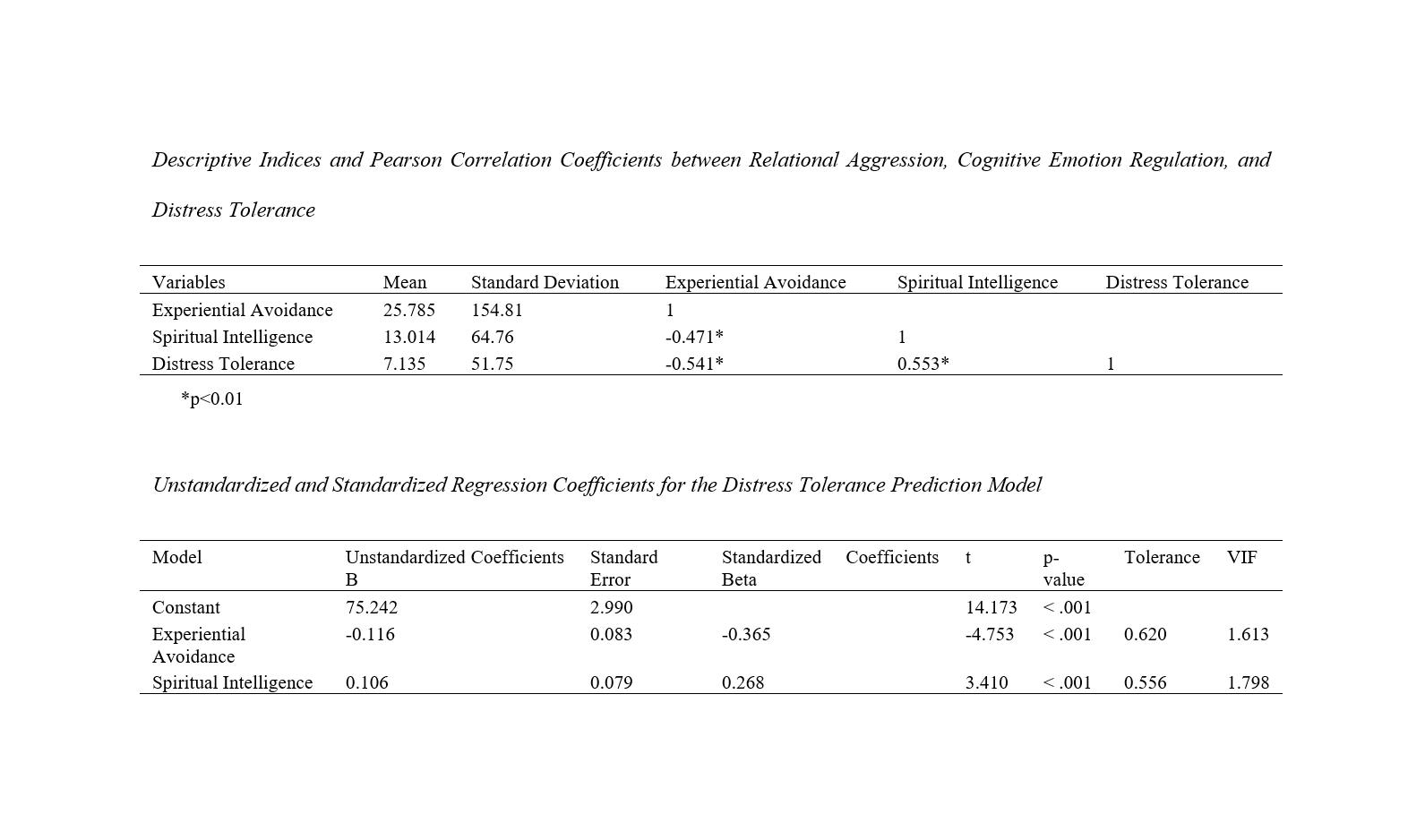Predicting Distress Tolerance in the Elderly Based on Experiential Avoidance and Spiritual Intelligence
Keywords:
Distress tolerance, avoidance, spiritual intelligence, elderlyAbstract
Objective: The aim of the present study was to predict distress tolerance in the elderly based on experiential avoidance and spiritual intelligence.
Method: This was a descriptive correlational study. The population included all elderly individuals aged between 65 and 80 years who visited community centers in Tehran in 2022, from whom a sample of 300 was selected using cluster sampling. The Emotional Distress Tolerance Scale by Simons and Gaher (2005), the Spiritual Intelligence Scale by King (2008), and the Experiential Avoidance Questionnaire by Gámez et al. (2011) were utilized for data collection. Data were analyzed using regression analysis.
Findings: The results indicated that experiential avoidance significantly negatively predicted distress tolerance. Additionally, spiritual intelligence significantly positively predicted distress tolerance.
Conclusions: Based on the findings of the current study, it can be concluded that this predictive model could serve as an effective framework in counseling and psychotherapy centers to enhance distress tolerance among the elderly.
Downloads

Downloads
Additional Files
Published
Issue
Section
License

This work is licensed under a Creative Commons Attribution-NonCommercial 4.0 International License.




















